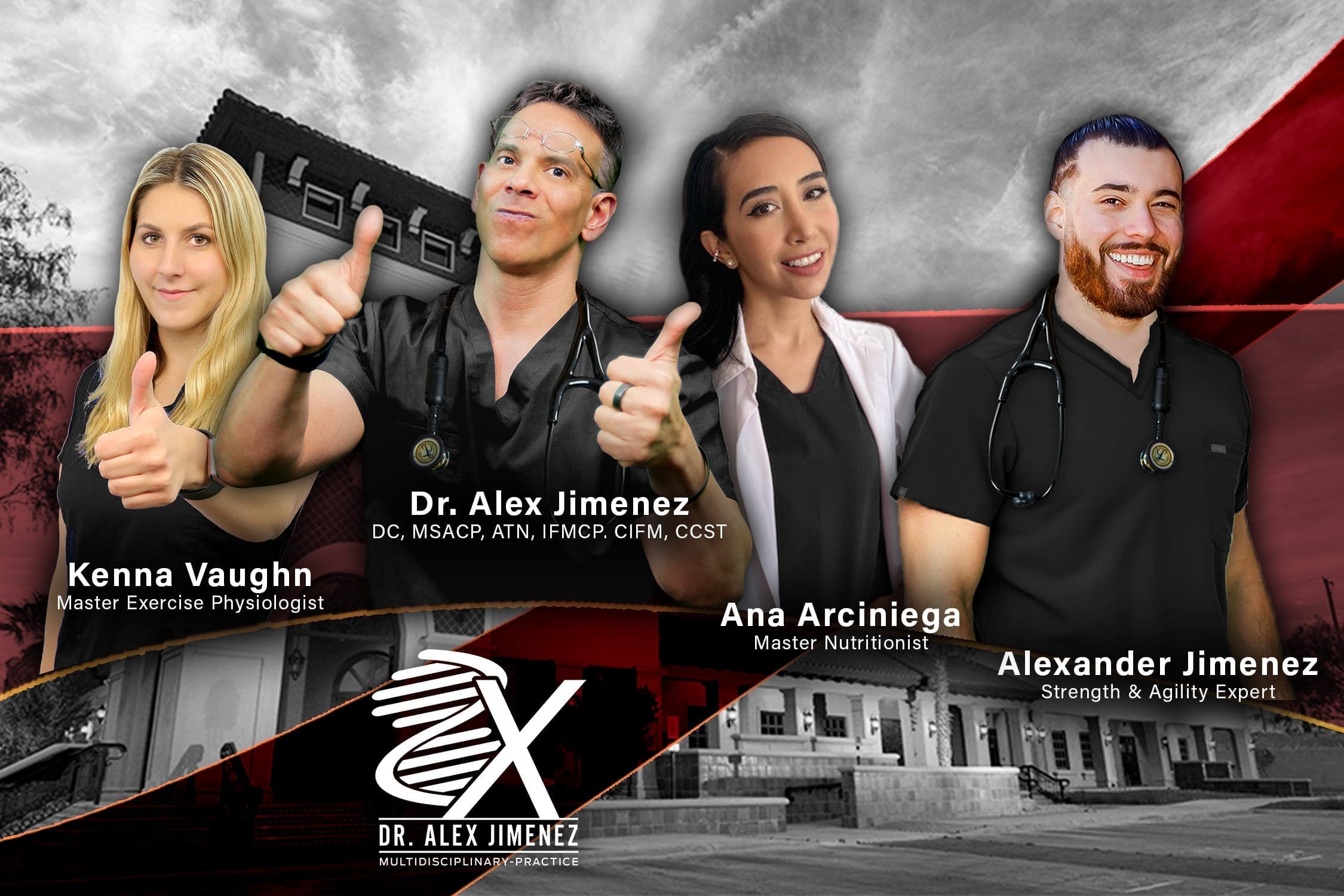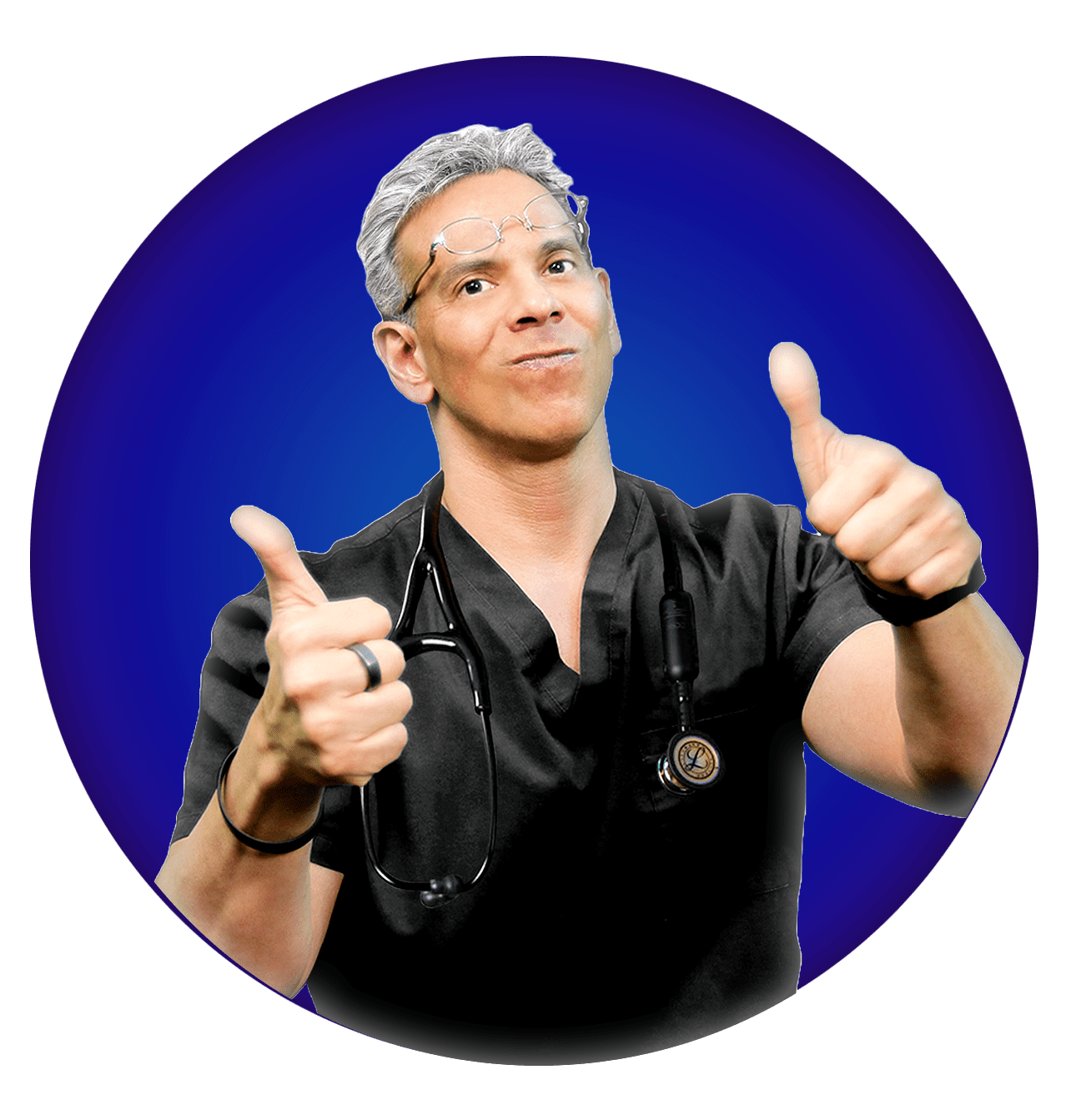Motor Vehicle Accident Diet for Faster Recovery
Diet After a Motor Vehicle Accident: A Comprehensive Guide to Recovery Through Nutrition

Introduction
Motor vehicle accidents (MVAs) are a significant cause of injury worldwide, affecting millions annually. In El Paso, Texas, recent statistics indicate over 16,000 MVAs occur each year, resulting in thousands of injuries and numerous fatalities (Farah Law). These accidents can lead to a range of injuries, from minor soft tissue damage to severe fractures and traumatic brain injuries, impacting physical, emotional, and mental well-being. Recovery from such injuries requires a multifaceted approach, including medical treatment, physical therapy, and, crucially, proper nutrition.
Nutrition is a cornerstone of healing, providing the body with the building blocks needed to repair tissues, reduce inflammation, and restore strength. A well-planned diet can complement medical interventions, potentially accelerating recovery and enhancing overall health outcomes. In El Paso, experts like Dr. Alexander Jimenez, a chiropractor and family nurse practitioner, emphasize the integration of nutritional coaching into recovery plans for MVA victims. His holistic approach combines advanced diagnostic tools, chiropractic care, and personalized dietary strategies to support patients’ healing journeys (Dr. Alex Jimenez).
This comprehensive guide explores the role of nutrition in MVA recovery, detailing key nutrients, recommended foods, and foods to avoid. It also highlights Dr. Jimenez’s expertise in treating injuries related to motor vehicle accidents (MVAs) and the importance of nutrition in his practice. Additionally, we examine the prevalence of MVAs in El Paso and how professionals, such as Dr. Jimenez, address both the medical and legal aspects of recovery.
Citations:
- Farah Law. (2024). Most dangerous roads for car accidents in El Paso. https://www.gflawoffices.com/blog/2024/january/most-dangerous-roads-for-car-accidents-in-el-pas/
- Jimenez, A. (n.d.). Dr. Alex Jimenez, chiropractor and injury recovery. https://dralexjimenez.com/
Understanding MVA Injuries
MVAs can result in various injuries, ranging from mild to life-altering. Common injuries include:
- Whiplash and Soft Tissue Injuries: These affect the neck and back, often causing pain and reduced mobility due to strained muscles and ligaments.
- Fractures, particularly those involving the arms, legs, or spine, require a significant amount of healing time and nutritional support.
- Head and Brain Injuries: Traumatic brain injuries (TBIs) or concussions can impact cognitive function and require specific nutritional interventions.
- Musculoskeletal Joint Pain: The force of an MVA can strain joints, leading to chronic pain and inflammation in areas like the knees, shoulders, or spine.
These injuries can lead to long-term complications, such as chronic pain or reduced mobility, if not properly managed. Musculoskeletal joint pain, in particular, is a frequent outcome of MVAs due to the sudden impact on muscles, ligaments, and joints. This pain can persist, affecting daily activities and quality of life. Proper nutrition can mitigate these effects by supporting tissue repair and reducing inflammation, as evidenced by research on nutritional strategies for injury recovery (PMC).
Citations:
- National Center for Biotechnology Information. (2020). Nutritional considerations and strategies to facilitate injury recovery and rehabilitation. https://www.ncbi.nlm.nih.gov/pmc/articles/PMC7534941/
Nutritional Needs for MVA Recovery
Recovering from an MVA requires a diet rich in specific nutrients to support the body’s healing processes. Below are the key nutrients and their roles in recovery, supported by scientific evidence:
Proteins
Proteins are essential for repairing muscles, tissues, and ligaments damaged during an MVA. They provide amino acids, the building blocks for tissue regeneration. Research suggests that active individuals require 1.4–2.0 g of protein per kg of body weight daily, with higher needs (1.6–3.0 g/kg/day) during recovery to minimize muscle loss (PMC). Leucine-rich proteins, found in eggs and dairy products, are particularly effective in enhancing recovery.
Omega-3 Fatty Acids
Omega-3 fatty acids have potent anti-inflammatory properties, which can reduce pain and swelling associated with MVA injuries. Fatty fish (such as salmon and mackerel), flaxseeds, chia seeds, and walnuts contain these fatty acids. Studies indicate that 2 g/day of omega-3 fatty acids can support cell proliferation and reduce prolonged inflammation (PMC).
Antioxidants
Antioxidants, including vitamins C and E, protect cells from oxidative stress caused by injury and other factors. Vitamin C, found in citrus fruits, bell peppers, and broccoli, supports collagen formation for tissue repair. Vitamin E, present in nuts and seeds, helps protect cell membranes. These nutrients are critical for immune function and healing (Respmr).
Vitamin D and Calcium
Vitamin D and calcium are essential for maintaining bone health, particularly in individuals with a history of fractures. Vitamin D enhances calcium absorption, while calcium strengthens bones. Sources include dairy, leafy greens, and fortified plant-based milks. Research indicates that low vitamin D levels can impair recovery, particularly after surgeries such as anterior cruciate ligament repair. (PMC).
Zinc
Zinc supports wound healing and immune function, which are crucial for preventing infections during recovery. Red meats, beans, nuts, and seeds contain this amino acid. Studies suggest zinc can speed up recovery from traumatic injuries, including brain injuries (Yummiest Food).
Hydration
Adequate hydration is crucial for overall recovery, as it supports nutrient transport and tissue repair. Experts recommend drinking 8–10 glasses of water daily, adjusting the amount based on your activity level or medical advice. (Respmr).
| Nutrient | Benefits | Food Sources |
|---|---|---|
| Proteins | Tissue repair, muscle rebuilding | Eggs, chicken, fish, beans, dairy |
| Omega-3 Fatty Acids | Reduce inflammation, support healing | Salmon, mackerel, flaxseeds, walnuts |
| Antioxidants | Protect cells, support immune function | Berries, citrus fruits, leafy greens |
| Vitamin D & Calcium | Bone health, fracture recovery | Dairy, leafy greens, fortified milks |
| Zinc | Wound healing, immune support | Red meats, beans, nuts, and seeds |
Citations:
- National Center for Biotechnology Information. (2020). Nutritional considerations and strategies to facilitate injury recovery and rehabilitation. https://www.ncbi.nlm.nih.gov/pmc/articles/PMC7534941/
- Respmr. (n.d.). Tantalizing powerful foods to supercharge injury recovery. https://respmr.com/tantalizing-powerful-foods-to-supercharge-injury-recovery/
- Yummiest Food. (2021). 9 delicious yet healthy foods for accident patients. https://yummiestfood.com/9-delicious-yet-healthy-foods-for-accident-patients/
Recommended Foods for Recovery
A diet rich in nutrient-dense foods can significantly enhance recovery from MVA injuries. Below are recommended food categories, with examples and their benefits:
Fruits and Vegetables
Fruits and vegetables are packed with vitamins, minerals, and antioxidants. Various colors ensure a broad spectrum of nutrients. For example:
- Berries (e.g., blueberries, strawberries) provide antioxidants to reduce oxidative stress.
- Citrus fruits (e.g., oranges, grapefruits) are high in vitamin C for tissue repair.
- Leafy greens (e.g., spinach, kale) offer vitamin K, which supports blood clotting and bone health.
- Broccoli contains calcium and vitamin C, which help support bone and tissue health.
Lean Proteins
Proteins are critical for rebuilding damaged tissues. Recommended sources include:
- Chicken and turkey: Lean meats rich in protein and zinc.
- Fish: Salmon and mackerel are excellent sources of protein and omega-3 fatty acids.
- Eggs: A complete protein source with leucine for muscle repair.
- Beans and legumes: Plant-based proteins for vegetarians, also high in fiber.
Healthy Fats
Healthy fats support cell membrane health and reduce inflammation. Include:
- Avocados: Rich in monounsaturated fats and vitamin E.
- Nuts and seeds: Almonds, walnuts, and chia seeds are rich in omega-3 fatty acids and antioxidants.
- Olive oil: A source of anti-inflammatory monounsaturated fats.
Whole Grains
Whole grains provide sustained energy and fiber, supporting digestion and overall health. Examples include:
- Quinoa: A complete protein and complex carbohydrate.
- Brown rice: High in fiber and energy-sustaining carbs.
- Oats: Rich in fiber and nutrients like zinc.
Sample Meal Plan
- Breakfast: Oatmeal with berries, chia seeds, and a side of Greek yogurt (carbohydrates, antioxidants, protein).
- Lunch: Grilled chicken salad with mixed greens, avocado, tomatoes, and olive oil dressing (protein, healthy fats, vitamins).
- Dinner: Baked salmon with quinoa and steamed broccoli (omega-3s, protein, fiber).
- Snacks: Almonds, carrot sticks with hummus, or a fruit smoothie with spinach.
Citations:
- Respmr. (n.d.). Tantalizing powerful foods to supercharge injury recovery. https://respmr.com/tantalizing-powerful-foods-to-supercharge-injury-recovery/
- Yummiest Food. (2021). 9 delicious yet healthy foods for accident patients. https://yummiestfood.com/9-delicious-yet-healthy-foods-for-accident-patients/
Foods to Avoid During Recovery
Certain foods can hinder recovery by promoting inflammation or lacking nutritional value. These include:
- Processed Foods: High in unhealthy fats, sugars, and additives, processed foods like chips and fast food can exacerbate inflammation (Justice for You).
- Sugary Drinks: Sodas and sweetened beverages contribute to weight gain and inflammation, potentially slowing healing (LinkedIn).
- Excessive Caffeine: While moderate caffeine intake is generally safe, excessive consumption can disrupt sleep, a crucial factor in recovery. Research suggests avoiding caffeine after concussions due to potential negative effects on cognitive and motor functions (PMC).
Limiting these foods helps maintain a healthy weight, reduce inflammation, and support the body’s healing processes.
Citations:
- Justice for You. (2012). What can I eat to help me recover from a personal injury? https://www.justiceforyou.com/faqs/what-can-i-eat-to-help-me-recover-from-a-personal-injury/
- LinkedIn. (2014). Recovering from car accident injuries: Diet. https://www.linkedin.com/pulse/20140701155407-36031744-recovering-from-car-accident-injuries-diet
- National Center for Biotechnology Information. (2020). Nutritional considerations and strategies to facilitate injury recovery and rehabilitation. https://www.ncbi.nlm.nih.gov/pmc/articles/PMC7534941/
Dr. Alexander Jimenez’s Holistic Approach
Dr. Alexander Jimenez, a chiropractor and family nurse practitioner in El Paso, Texas, is renowned for his expertise in treating MVA victims. With credentials including DC, MSACP, APRN, FNP-BC, and certifications in functional medicine, Dr. Jimenez offers a holistic approach to recovery (Dr. Alex Jimenez). His methods include:
- Advanced Imaging and Diagnostics: Dr. Jimenez utilizes advanced imaging techniques to accurately assess injuries, including musculoskeletal joint pain and soft tissue damage, ensuring the development of precise treatment plans.
- Dual-Scope Procedures: These innovative techniques address complex injuries, combining chiropractic adjustments with other therapies to restore mobility and reduce pain.
- Nutritional and Health Coaching: Recognizing the role of nutrition in healing, Dr. Jimenez provides personalized dietary plans to support tissue repair and reduce inflammation. His clinic emphasizes the importance of nutrient-dense foods and hydration (Personal Injury Doctor Group).
- Legal Documentation: Dr. Jimenez collaborates with legal professionals to provide comprehensive medical documentation, which is crucial for personal injury cases, ensuring that patients receive both medical care and legal support.
A patient testimonial highlights Dr. Jimenez’s impact: Leticia, a grandmother, regained her ability to perform daily activities after chiropractic treatment for MVA injuries, underscoring the effectiveness of his approach (LinkedIn).
Citations:
- Jimenez, A. (n.d.). Dr. Alex Jimenez, chiropractor and injury recovery. https://dralexjimenez.com/
- Personal Injury Doctor Group. (n.d.). El Paso’s premier wellness & injury care clinic. https://personalinjurydoctorgroup.com/
- LinkedIn. (2018). Auto accident injury treatment | El Paso, TX chiropractor. https://www.linkedin.com/pulse/auto-accident-injury-treatment-el-paso-tx-dr-alexander-jimenez-
Personal Injury Cases in El Paso
El Paso experiences a high volume of MVAs, with over 16,000 accidents reported annually, resulting in 69 fatalities and thousands of injuries, including 124 serious injuries requiring hospitalization (Safe Roads USA). Motorcycle accidents are particularly severe, with El Paso ranking among Texas’s top counties for motorcycle crashes, with 313 accidents and 61 serious injuries or fatalities in 2017 (Cesar Ornelas Law).
Dr. Jimenez’s clinic is a key resource for MVA victims in El Paso, offering specialized care for injuries like whiplash, back pain, and musculoskeletal joint pain. His team, including chiropractors, nutritionists, and medical professionals, provides comprehensive treatment plans that integrate nutrition, physical therapy, and chiropractic care. By addressing both medical and legal needs, Dr. Jimenez ensures patients receive holistic support, from healing to securing fair compensation (Personal Injury Doctor Group).
| Statistic | Details |
|---|---|
| Annual MVA Count | Over 16,000 accidents in El Paso |
| Fatalities | 69 fatalities annually |
| Serious Injuries | 124 incapacitating injuries requiring hospitalization |
| Motorcycle Accidents | 313 accidents, 61 serious injuries or fatalities (2017) |
Citations:
- Safe Roads USA. (2022). El Paso road safety overview. https://www.makeroadssafe.org/el-paso-road-safety-overview/
- Cesar Ornelas Law. (2023). Injury statistics in El Paso. https://cesarornelaslaw.com/injury-statistics-in-el-paso/
- Personal Injury Doctor Group. (n.d.). El Paso’s premier wellness & injury care clinic. https://personalinjurydoctorgroup.com/
Conclusion
Recovering from a motor vehicle accident is a complex process that requires medical treatment, physical therapy, and proper nutrition. A diet rich in proteins, omega-3 fatty acids, antioxidants, vitamin D, calcium, and zinc can support tissue repair, reduce inflammation, and enhance overall well-being. Avoiding processed foods, sugary drinks, and excessive caffeine is equally important to prevent setbacks in recovery.
Experts like Dr. Alexander Jimenez in El Paso, Texas, advocate for integrating nutritional coaching into recovery plans, combining it with advanced diagnostics and chiropractic care to optimize outcomes. His holistic approach addresses both the physical and legal aspects of MVA recovery, making him a trusted resource for patients in El Paso, where MVAs are a significant concern.
For personalized dietary advice, consult a healthcare professional, such as Dr. Jimenez, who can tailor a plan to your specific needs and injuries. Visit Dr. Alex Jimenez or Personal Injury Doctor Group for more information on MVA recovery and nutritional support.
Citations:
- Jimenez, A. (n.d.). Dr. Alex Jimenez, chiropractor and injury recovery. https://dralexjimenez.com/
- Personal Injury Doctor Group. (n.d.). El Paso’s premier wellness & injury care clinic. https://personalinjurydoctorgroup.com/
Key Citations:
- El Paso road safety overview Safe Roads USA
- Injury statistics in El Paso, Cesar Ornelas Law
- Most dangerous roads for car accidents in El Paso, Farah Law
- Dr. Alex Jimenez, chiropractor and injury recovery Dr. Alex Jimenez
- El Paso’s premier wellness & injury care clinic, Personal Injury Doctor Group
- Tantalizing, powerful foods to supercharge injury recovery, Respmr
- 9 delicious yet healthy foods for accident patients Yummiest Food
- What can I eat to help me recover from a personal injury? Justice for You
- Recovering from car accident injuries: Diet LinkedIn
- Auto accident injury treatment | El Paso, TX chiropractor LinkedIn
- Nutritional considerations and strategies to facilitate injury recovery and rehabilitation, PMC
Post Disclaimers
General Disclaimer, Licenses and Board Certifications *
Professional Scope of Practice *
The information herein on "Motor Vehicle Accident Diet for Faster Recovery" is not intended to replace a one-on-one relationship with a qualified health care professional or licensed physician and is not medical advice. We encourage you to make healthcare decisions based on your research and partnership with a qualified healthcare professional.
Blog Information & Scope Discussions
Welcome to El Paso's Premier Wellness and Injury Care Clinic & Wellness Blog, where Dr. Alex Jimenez, DC, FNP-C, a Multi-State board-certified Family Practice Nurse Practitioner (FNP-BC) and Chiropractor (DC), presents insights on how our multidisciplinary team is dedicated to holistic healing and personalized care. Our practice aligns with evidence-based treatment protocols inspired by integrative medicine principles, similar to those on this site and on our family practice-based chiromed.com site, focusing on naturally restoring health for patients of all ages.
Our areas of multidisciplinary practice include Wellness & Nutrition, Chronic Pain, Personal Injury, Auto Accident Care, Work Injuries, Back Injury, Low Back Pain, Neck Pain, Migraine Headaches, Sports Injuries, Severe Sciatica, Scoliosis, Complex Herniated Discs, Fibromyalgia, Chronic Pain, Complex Injuries, Stress Management, Functional Medicine Treatments, and in-scope care protocols.
Our information scope is multidisciplinary, focusing on musculoskeletal and physical medicine, wellness, contributing etiological viscerosomatic disturbances within clinical presentations, associated somato-visceral reflex clinical dynamics, subluxation complexes, sensitive health issues, and functional medicine articles, topics, and discussions.
We provide and present clinical collaboration with specialists from various disciplines. Each specialist is governed by their professional scope of practice and their jurisdiction of licensure. We use functional health & wellness protocols to treat and support care for musculoskeletal injuries or disorders.
Our videos, posts, topics, and insights address clinical matters and issues that are directly or indirectly related to our clinical scope of practice.
Our office has made a reasonable effort to provide supportive citations and has identified relevant research studies that support our posts. We provide copies of supporting research studies upon request to regulatory boards and the public.
We understand that we cover matters that require an additional explanation of how they may assist in a particular care plan or treatment protocol; therefore, to discuss the subject matter above further, please feel free to ask Dr. Alex Jimenez, DC, APRN, FNP-BC, or contact us at 915-850-0900.
We are here to help you and your family.
Blessings
Dr. Alex Jimenez DC, MSACP, APRN, FNP-BC*, CCST, IFMCP, CFMP, ATN
email: [email protected]
Multidisciplinary Licensing & Board Certifications:
Licensed as a Doctor of Chiropractic (DC) in Texas & New Mexico*
Texas DC License #: TX5807, Verified: TX5807
New Mexico DC License #: NM-DC2182, Verified: NM-DC2182
Multi-State Advanced Practice Registered Nurse (APRN*) in Texas & Multi-States
Multi-state Compact APRN License by Endorsement (42 States)
Texas APRN License #: 1191402, Verified: 1191402 *
Florida APRN License #: 11043890, Verified: APRN11043890 *
Colorado License #: C-APN.0105610-C-NP, Verified: C-APN.0105610-C-NP
New York License #: N25929, Verified N25929
License Verification Link: Nursys License Verifier
* Prescriptive Authority Authorized
ANCC FNP-BC: Board Certified Nurse Practitioner*
Compact Status: Multi-State License: Authorized to Practice in 40 States*
Graduate with Honors: ICHS: MSN-FNP (Family Nurse Practitioner Program)
Degree Granted. Master's in Family Practice MSN Diploma (Cum Laude)
Dr. Alex Jimenez, DC, APRN, FNP-BC*, CFMP, IFMCP, ATN, CCST
My Digital Business Card
Licenses and Board Certifications:
DC: Doctor of Chiropractic
APRNP: Advanced Practice Registered Nurse
FNP-BC: Family Practice Specialization (Multi-State Board Certified)
RN: Registered Nurse (Multi-State Compact License)
CFMP: Certified Functional Medicine Provider
MSN-FNP: Master of Science in Family Practice Medicine
MSACP: Master of Science in Advanced Clinical Practice
IFMCP: Institute of Functional Medicine
CCST: Certified Chiropractic Spinal Trauma
ATN: Advanced Translational Neutrogenomics
Memberships & Associations:
TCA: Texas Chiropractic Association: Member ID: 104311
AANP: American Association of Nurse Practitioners: Member ID: 2198960
ANA: American Nurse Association: Member ID: 06458222 (District TX01)
TNA: Texas Nurse Association: Member ID: 06458222
NPI: 1205907805
| Primary Taxonomy | Selected Taxonomy | State | License Number |
|---|---|---|---|
| No | 111N00000X - Chiropractor | NM | DC2182 |
| Yes | 111N00000X - Chiropractor | TX | DC5807 |
| Yes | 363LF0000X - Nurse Practitioner - Family | TX | 1191402 |
| Yes | 363LF0000X - Nurse Practitioner - Family | FL | 11043890 |
| Yes | 363LF0000X - Nurse Practitioner - Family | CO | C-APN.0105610-C-NP |
| Yes | 363LF0000X - Nurse Practitioner - Family | NY | N25929 |
Dr. Alex Jimenez, DC, APRN, FNP-BC*, CFMP, IFMCP, ATN, CCST
My Digital Business Card








Comments are closed.